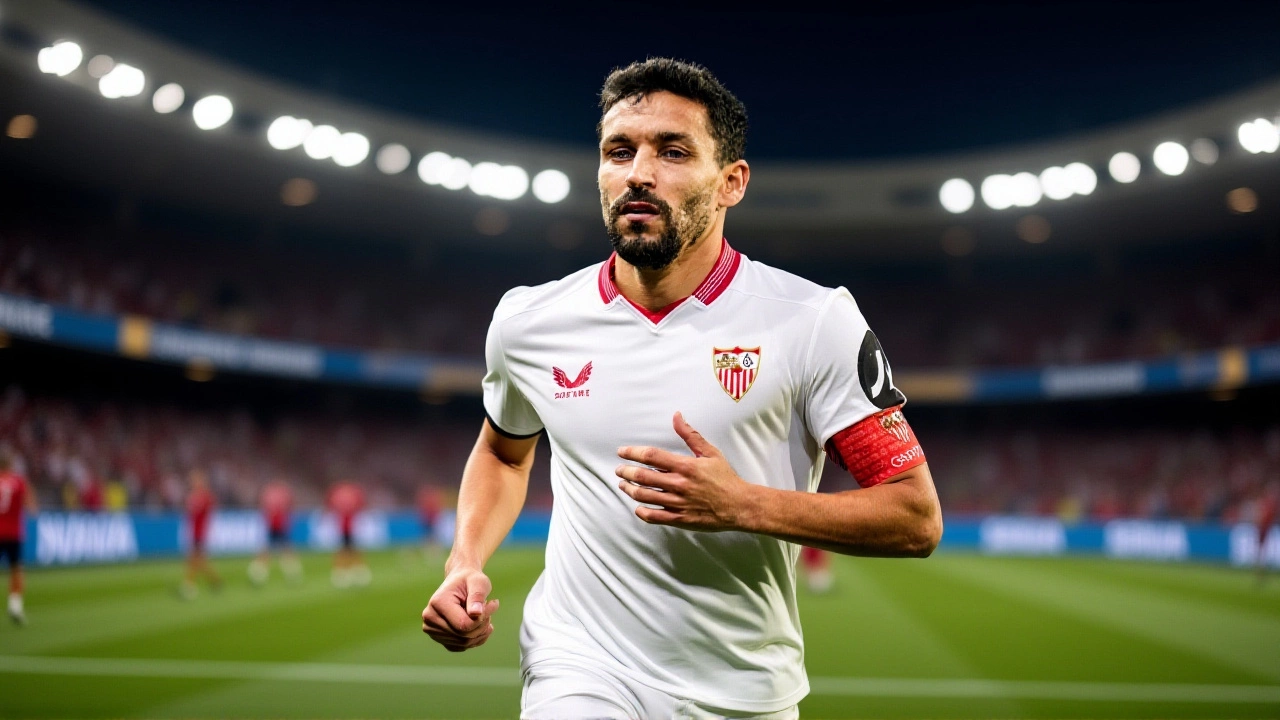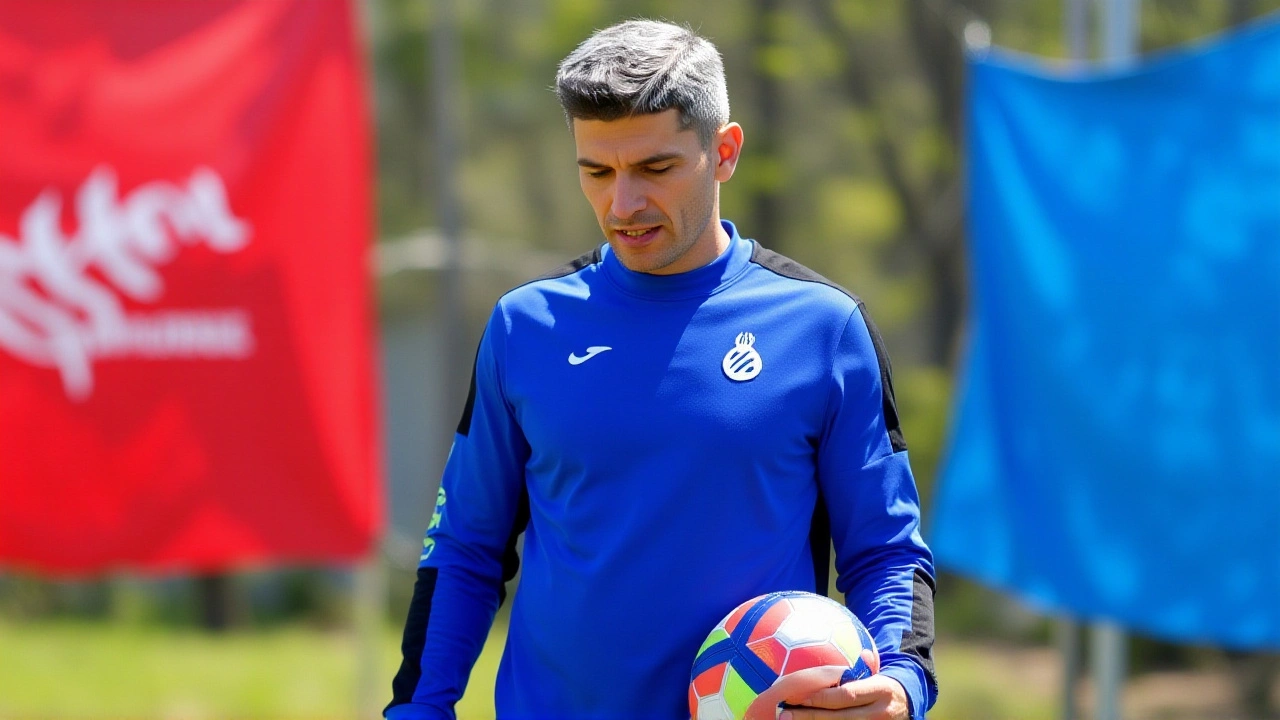At precisely 17:36:00 UTC on May 25, 2017, Salva Sevilla walked away from professional football—not with a roar, but with a quiet, official nod from the club he’d worn for three seasons. The 33-year-old Spanish midfielder, born in Berja, Andalusia, ended his playing career with RCD Espanyol, the historic Barcelona-based team known for its white and blue stripes. The announcement, posted on the club’s official website, wasn’t a dramatic farewell tour or a tearful press conference. It was a simple, heartfelt note: “RCD Espanyol would like to thank Salva Sevilla for his commitment, work and effort during these three years and wishes him greatest successes for the personal and professional future.” And that was it. No transfer rumors. No coaching role hinted at. Just a man closing a chapter.
A Quiet Exit from a Loud Club
RCD Espanyol isn’t just any Spanish club. Founded in 1900, it’s one of the oldest in the country, with a passionate fanbase and a fierce rivalry with FC Barcelona. Sevilla, a central midfielder with a no-frills, workmanlike style, never became a household name—but he became a fixture. He arrived in the summer of 2014, after stints at clubs like Almería and Real Zaragoza, and quickly earned respect for his positioning, tackling, and reliability. In a league full of flair and showmanship, Sevilla was the guy who did the dirty work without complaint.He played 78 league matches over three seasons, starting 57 of them. His final game? A 2-1 loss to Real Sociedad on May 21, 2017, at the RCDE Stadium in Cornellà de Llobregat. The 40,000-seat arena, opened in 2009, had become his second home. He never scored a dramatic goal, never lifted a trophy with the club—but he was there, every week, rain or shine, injury or fatigue. That’s the kind of player clubs remember.
The Numbers Behind the Farewell
The timing of the announcement—May 25, 2017—wasn’t random. The 2016-2017 LaLiga season had officially ended four days earlier, and clubs were finalizing their rosters ahead of the summer transfer window. Sevilla was one of several veterans let go as the club began a transition. At 33, he was no longer part of the long-term plan. His contract expired, and neither side pushed for renewal. That’s common in football: players age out, and clubs move on. But for Sevilla, it was more than just a contract end. It was the end of a 15-year professional journey that began in 2002 with his hometown club, Berja CF.
His stats tell a modest story: 78 appearances, 1 goal, 3 assists in LaLiga. But ask anyone who watched him play, and they’ll tell you he was worth more than numbers. He read the game like a chess player. He broke up attacks before they started. He covered ground like a man twice his age. In a league dominated by flashy wingers and goal-hungry strikers, Sevilla was the unsung glue.
What Happens Next?
The club’s statement offered no clues. No mention of a coaching role. No hint of a front-office position. No social media post from Sevilla himself. He simply vanished from public view after the announcement. That’s unusual in today’s hyper-connected world, where players immediately announce their next move—whether it’s joining a lower-tier club, moving into punditry, or launching a YouTube channel.
But Sevilla didn’t do any of that. He disappeared quietly, the way he played. And maybe that’s telling. Some players leave the game not because they’re burned out, but because they’ve had enough of the noise. Maybe he’s spending time with his family in Berja. Maybe he’s coaching youth teams behind closed doors. Or maybe he’s just enjoying a quiet life away from the spotlight. Either way, his departure wasn’t marked by controversy or drama—it was marked by dignity.

Why This Matters
Salva Sevilla’s exit wasn’t headline news across Spain. No TV networks ran retrospectives. But for the 20,000 fans who showed up at the RCDE Stadium every home match, he mattered. He represented the quiet professionalism that keeps clubs running when the stars are injured or suspended. He was the kind of player who never got a standing ovation for a goal—but got one for a last-ditch tackle in the 89th minute.
His story is a reminder that football isn’t just about Neymars and Modrics. It’s about the 33-year-old central midfielder who gives everything for three seasons, then walks away without fanfare. Clubs like RCD Espanyol depend on players like him. And when they leave, the team doesn’t just lose a player—it loses a piece of its identity.
As for Sevilla? No one knows where he is now. But if you’re ever in Berja, look for a man walking his dog near the old town square. He might not be wearing a jersey anymore—but he’ll still know every pass, every tackle, every moment of the game.
Frequently Asked Questions
Did Salva Sevilla retire from football entirely after leaving RCD Espanyol?
There has been no official confirmation that Salva Sevilla retired from football, but he has not appeared in any professional matches, coaching roles, or public football-related activities since May 2017. His absence from the public eye suggests a deliberate step away from the professional game, though he may be involved in grassroots or non-public football roles.
What was Salva Sevilla’s role at RCD Espanyol?
Sevilla played as a central midfielder for RCD Espanyol from 2014 to 2017, appearing in 78 LaLiga matches. He was known for his defensive discipline, positional awareness, and ability to break up opposition play rather than create goals. He was a key rotational player, often stepping in when regular starters were injured or suspended.
Why did RCD Espanyol let Salva Sevilla go after three seasons?
At age 33, Sevilla was nearing the end of his playing career, and RCD Espanyol was restructuring its squad following a mid-table finish in the 2016-2017 season. The club opted to promote younger midfielders like Marc Roca and Dani Pacheco, making Sevilla’s contract non-renewable. His departure was part of a broader generational shift, not a reflection of poor performance.
Where did Salva Sevilla play before joining RCD Espanyol?
Before joining RCD Espanyol in 2014, Sevilla played for Almería (2011–2014), Real Zaragoza (2009–2011), and CD Tenerife (2008–2009). He began his professional career at Berja CF in his hometown and later played for Recreativo de Huelva’s youth setup. His career path reflects the typical journey of a Spanish midfielder who never reached elite stardom but maintained a steady presence in LaLiga.
Is Salva Sevilla still connected to RCD Espanyol in any official capacity?
As of 2024, there is no public record of Salva Sevilla holding any official position with RCD Espanyol, such as ambassador, coach, or scout. The club’s website no longer lists him among former players in any active role. His farewell announcement in 2017 remains his last public interaction with the club.
How did fans react to Salva Sevilla’s departure?
Fan reactions were muted but respectful. Unlike star players, Sevilla didn’t receive a farewell ceremony, but many supporters praised him on forums and social media for his consistency and professionalism. A popular fan blog, Espanyol Insider, noted that he was "the kind of player you didn’t notice until he was gone." His departure marked the end of an era for those who valued grit over glamour.
